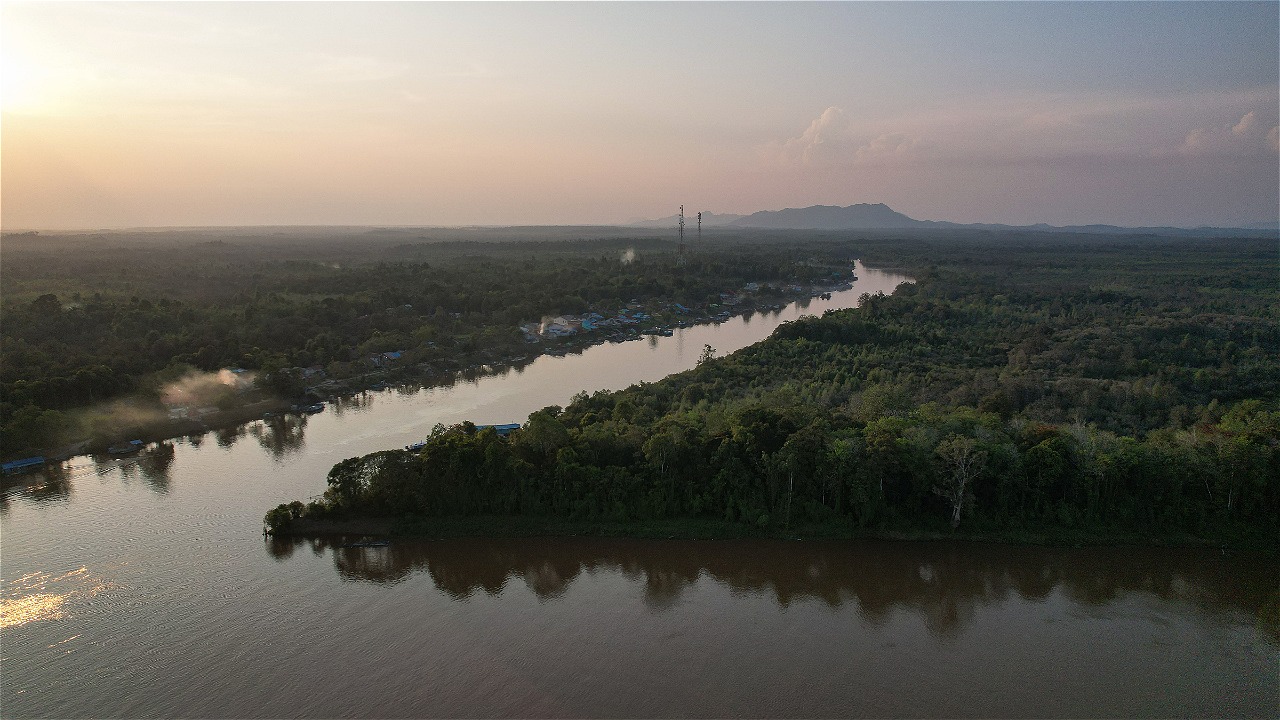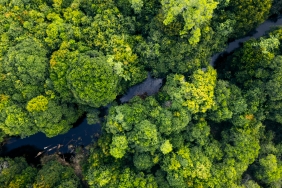PROFILE: RUDI ZAPARIZA
By Noverica Widjojo
The province of West Kalimantan holds a special place in Rudi Zapariza's heart. The man who is the Project Leader WWF-Indonesia for the Sintang and Melawi districts since 2010, has been working in conservation in the province for 10 years.
As a former activist of Student Nature Lovers (Mapala) of Muhammadiyah University of Yogyakarta, Rudi joined WWF-Indonesia in 2002. His main job at the time was to help communities in the buffer zone of Betung Kerihun National Park (TNBK) through conservation that benefits the community. "At that time, I worked as a Buffer Zone Development Coordinator, stationed in Kapuas Hulu Regency, which is the most remote regency in West Kalimantan," he said.
In 2005, Rudi became the Forest Coordinator WWF-Indonesia in Kapuas Hulu. At that time, Kapuas Hulu was launched as a conservation district, which was the first embryo to save the forests of the Heart of Borneo (HoB). He tried to provide important input into the formulation and implementation of local government policies. In addition, he also tried to convince the community to stop illegal logging activities and switch to developing agroforestry of rubber and forest plants. "Gradually, this effort paid off. Currently, around 300 hectares of land have been planted with rubber and forest plants," Rudi said.
His mission did not always run smoothly. Rudi often encountered obstacles such as opposition to the conservation program from some individuals. He has also experienced threats of violence and indirect pressures. But that did not discourage him.
The man who was born on August 24, 1972, said that he is very happy to study the values of local wisdom of the community, which according to him is very important for the implementation of conservation and sustainable development in the field. "Understanding the character and typology of the community is also an important value for me to continue contributing to the world of conservation," Rudi said.
After working at TNBK and Danau Sentarum National Park (TNDS), the Bengkulu-born man is now working at Bukit Baka Bukit Raya National Park (TNBBBR). According to Rudi, the long-term and medium-term management development plan of TNBBBR is an important first step in West Kalimantan. "This initial step can provide input for spatial planning in these two districts, which is then followed by strengthening local communities and good forestry governance, so that strengthening HoB implementation can be achieved," he explained.
"In one and a half years of WWF-Indonesia working in Sintang-Melawi, there are still many implementation processes that must be supported. Even so, in general, WWF in both districts has been welcomed by the government and local communities", Rudi continued.
"Conservation must provide tangible benefits to the community." ~ Rudi Zapariza




